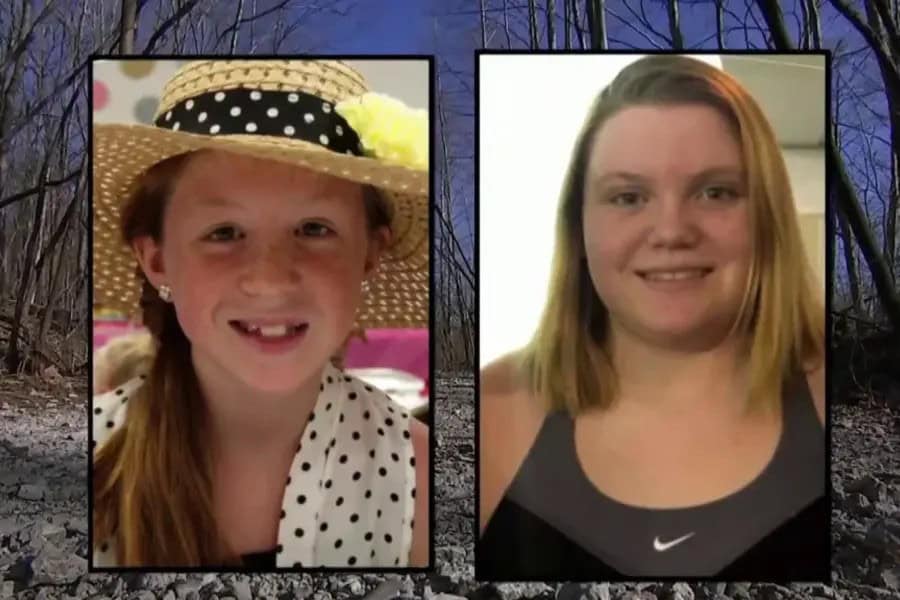The trial of Richard Allen, the man accused of the 2017 murders of two teenage girls in Delphi, Indiana, continued on Saturday with gripping testimonies that painted a haunting picture of the day Abby Williams and Libby German went missing. Allen, a pharmacy technician, is facing murder charges in a case that shocked the small community and captured national attention.
On February 13, 2017, Abby and Libby, both 14 years old, went for a hike on a popular trail near the Monon High Bridge but never returned. The following day, their bodies were found near a creek, just half a mile from where they were last seen. The details of their disappearance have remained shrouded in mystery, but Saturday’s testimonies sought to provide clarity, as well as underscore the prosecution’s theory of the events that unfolded that day.
Saturday marked the second day of witness testimonies, and the courtroom heard from key figures who were part of the initial search for the missing girls. Among the witnesses were Jake Johns and Pat Brown, two residents who played critical roles in the search efforts, as well as former Delphi Police Chief Steven Mullin, who testified about the events leading up to the discovery of the girls’ bodies.
Jake Johns, a Delphi resident who joined the search efforts the night Abby and Libby were reported missing, recalled the chilling moment he came across a piece of evidence. During his testimony, Johns recounted how he noticed footprints leading down the hill towards the creek, a detail that prosecutors believe aligns with their theory that the girls were forced down the hill by their killer. Later, Johns spotted what appeared to be Libby’s tie-dye shirt floating in the water, a sight that left the courtroom somber and reflective.
“The shirt was there, just drifting,” Johns said, his voice steady but heavy with emotion. “It was hard to process at that moment.”
Pat Brown, another resident who was part of the search team, provided one of the most emotional testimonies of the day. He described the moment he stumbled upon the girls’ bodies on the morning of February 14, 2017. Fighting back tears, Brown told the jury how he initially thought the bodies were mannequins, a surreal thought that quickly turned to horror once he realized the truth.
“I remember shouting, ‘We found them!’ I thought they were mannequins at first,” Brown said, his voice cracking as he recounted the scene. “It’s something I’ll never forget.”
The prosecution also called Steven Mullin, the former Delphi Police Chief who is now an investigator with the Carroll County Prosecutor’s Office. Mullin provided insight into the initial timeline of events, recounting how he was notified on the evening of February 13 that the two girls had not returned home. He admitted that, at first, he didn’t expect anything out of the ordinary.
“I figured the girls would return home, maybe just a little late from their hike,” Mullin said. “I didn’t think anything bad had happened at the time.”
Mullin also helped the jury visualize the scene by drawing a map that highlighted key locations near the Monon High Bridge. A drone video taken during the investigation was played in court, showing the trails and entrances to the bridge, giving the jurors a sense of the area’s layout. The remote and secluded nature of the location has played a significant role in the trial, with the defense questioning how sounds traveled across the trails, attempting to build a case that someone nearby might have seen or heard something.
During Friday’s opening statements, jurors learned the grim details of the case, including the cause of death. The prosecution revealed that both Abby and Libby had their throats cut, adding that Libby was found without clothes while Abby was wearing her friend’s garments. These details are central to the prosecution’s case as they attempt to prove that Allen was responsible for the brutal attack. Prosecutors also shared their theory that Allen, who was arrested in 2022, forced the girls down the hill towards the creek before committing the crime.
Allen, who has maintained his innocence since being charged, listened intently during Saturday’s testimonies but showed little emotion. His defense team is expected to argue that there is insufficient evidence tying him to the murders and that the case against him relies heavily on circumstantial evidence.
The trial has reignited memories of grief and loss in the small, tight-knit community of Delphi, where Abby and Libby’s deaths have left an indelible mark. Saturday’s testimonies, filled with vivid recollections from those who helped search for the girls, painted a picture of a community rallying together in the face of tragedy. Residents have long awaited justice, and the trial has been a source of both anticipation and heartache.
As the trial proceeds, jurors can expect to hear from law enforcement officials who were on the scene when the bodies were discovered, as well as forensic experts and other witnesses who will provide further details about the investigation. The judge has advised jurors that the trial could be lengthy, as both sides prepare to present their arguments over the coming weeks.
For now, the focus remains on the testimonies that reveal the immediate search efforts and the initial findings that have set the stage for the prosecution’s case. The trial will resume on Monday, and the community will once again watch closely, hoping that the legal process will bring answers to a case that has haunted them for years.

